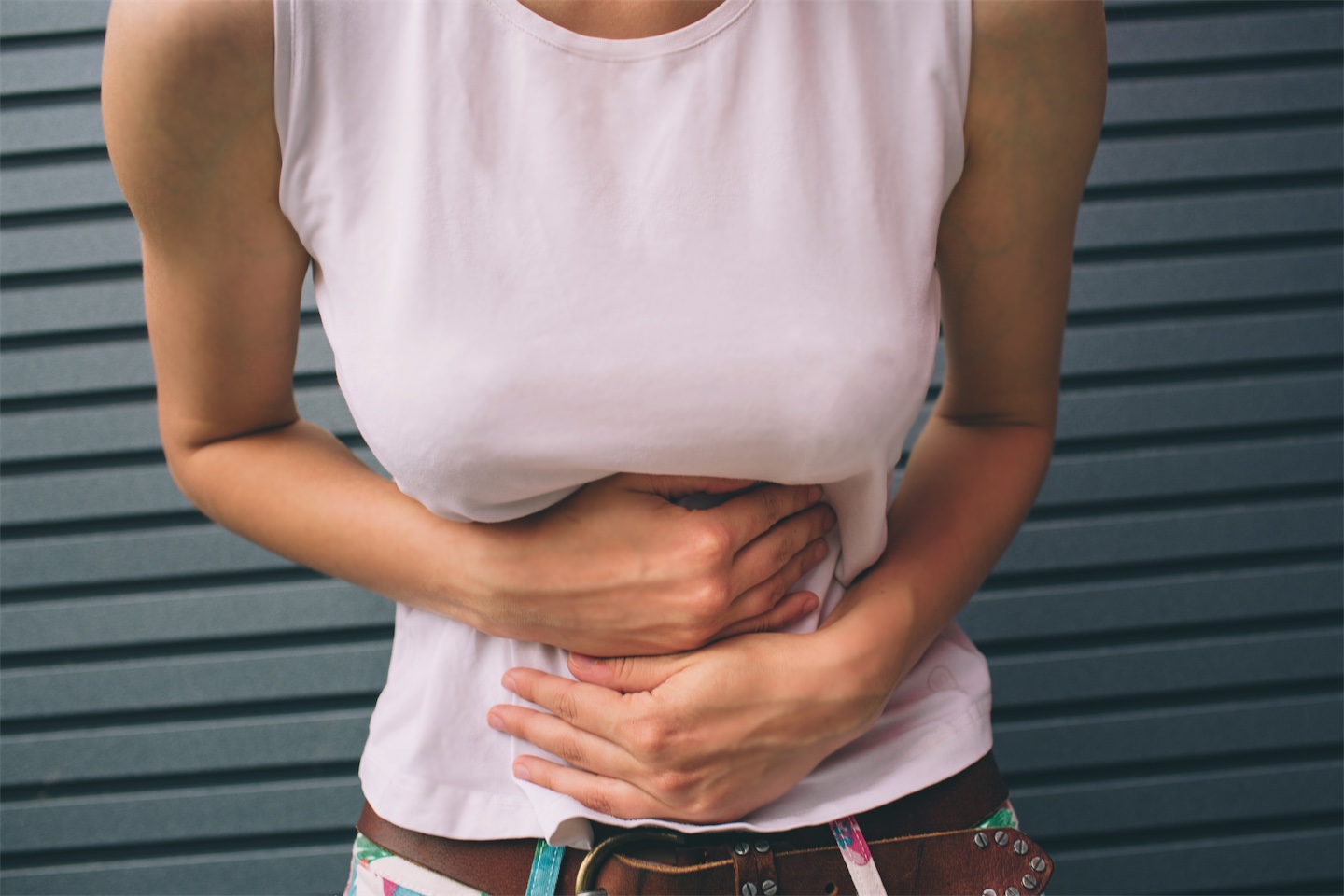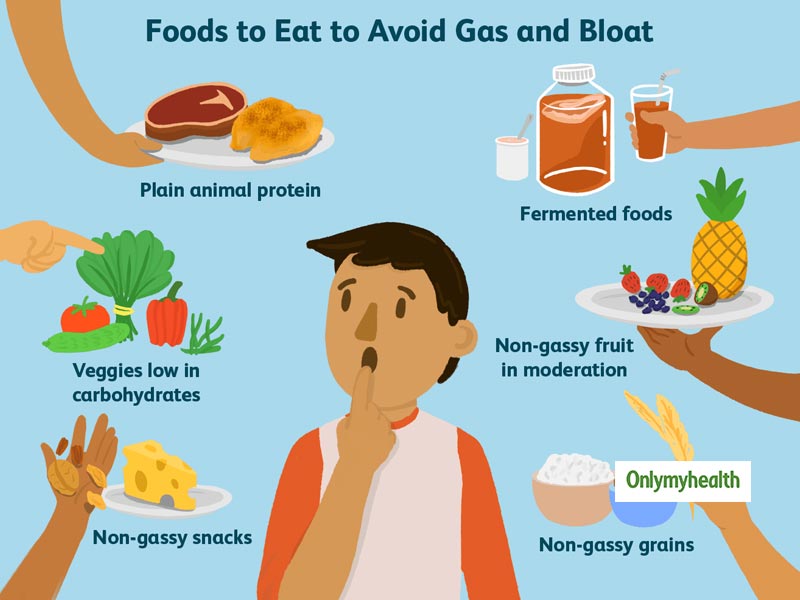

Polyols: found in most stone fruit, cauliflower, chewing gum, and candies.Monosaccharides: such as fructose and found in apples, pears, and honey.Disaccharides: such as lactose and found in dairy.Oligosaccharides: found in legumes, onions, garlic, wheat.You could try cutting out some or all of the following foods: Many people who commonly suffer from bloating have benefited from a low-FODMAP diet, or a diet low in fermentable oligosaccharides, disaccharides, monosaccharides, and polyols. Stomach bloating often occurs when poorly digested carbohydrates begin to ferment in the colon. If dealing with stomach bloating, you can try eating some ginger or drinking a cup of peppermint tea for an easy potential home remedy. Ginger is another herb that may help with upper GI symptoms, such as stomach bloating, and constipation. In early research, peppermint leaf proved to have a releasing effect on gastrointestinal (GI) tissue in animals and may help with bloating, but there has not yet been sufficient clinical research done on humans. Peppermint has a long history as a digestive aid in folk medicine, and peppermint oil could give some relief to people with IBS, or irritable bowel syndrome. If you have a hard time digesting the sugars in these foods, you might benefit from lactase supplements (such as Lactrase or Lactaid) for dairy or alpha-galactosidase supplements (such as Bean Relief or Beano) for legumes. However, over-the-counter enzymes have proven to help with the digestion of two commonly problematic foods: dairy and legumes (such as beans).

Most digestive enzyme supplements are effective only for people who cannot produce enzymes for medical reasons. One common cause of stomach bloating is the inability to digest certain foods. The formula in VSL#3 proved to reduce bloating in both adults and children in clinical studies. Still, there is some evidence that using probiotics can help reduce stomach bloating. The use of probiotics to help with digestive issues is common but little studied. However, there is some evidence to suggest that they may work when combined or when used with magnesium oxide or loperamide (Imodium).

The two have proven ineffective and/or inconsistent when used on their own in clinical trials. The body retains more gas when you are lying on your back, so try to stay active throughout the day.īoth simethicone (Gas X) and activated charcoal are marketed as gas-reducers. Physical exercise can help reduce bloating and clear gas from the body. While stomach bloating will often resolve on its own, the following measures may help reduce bloating or address its underlying causes: Remedies and Treatments for Bloated Stomachs Gastroparesis (slow emptying of the stomach into the small intestine)īloating is most often not serious, but it can be very uncomfortable.



 0 kommentar(er)
0 kommentar(er)
